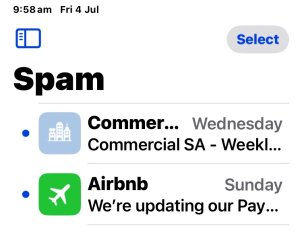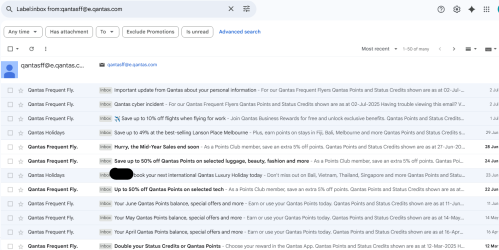justinbrett
Enthusiast
- Joined
- Mar 6, 2006
- Posts
- 11,858
- Qantas
- Platinum 1
- Oneworld
- Emerald
My routine during Covid was different, certainly doesn't match my routine now. No one can steal my identity knowing i bought a coffee at xyz cafe in 2020 or went to the hairdressers.
And the check-in app was run by the government, businesses registered for a QR code and you scanned it and sent your contact details with venue code, i dont think the government was selling that data. If they did then there was no DOB just a name and contact number and email; the email i used was one of the one i use for online forums etc not one I use for important stuff.
The app came much later, and perhaps your state was different, but cafes and restaurants etc were operating their own systems (if not pen and paper) collecting the same details as the later government apps. Certainly enough to sell to scammers.
Everyone is harping on about DOB but that’s the least of my concern (you can get that from Facebook for many). It’s the increased scam calls I’m worried about and they don’t need DOB. Any company I deal with that’s worth their salt will have more protection than just asking for my DOB, that probably 20 of my closest friends know and anyone in HR.
















